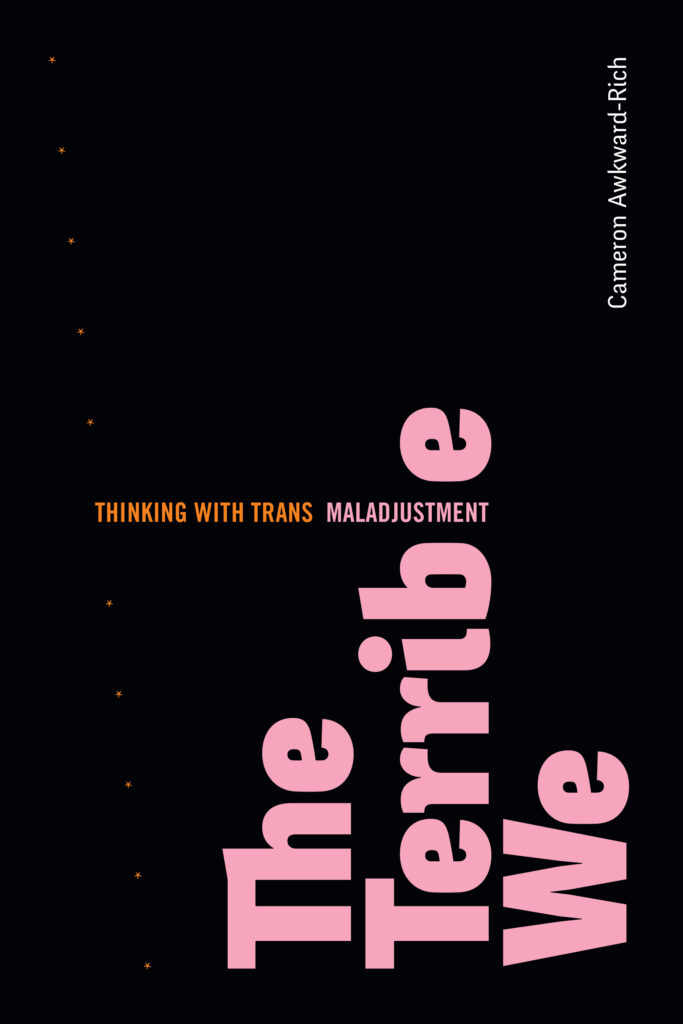
$25 (paperback)
“I’m not sick.” These words, said by Susan Stryker in response to a transphobic conference-goer in 1995, are what inaugurated both the field of trans studies and it’s strange and strained relationship to disability, to sickness. And it’s this tension that Cameron Awkward-Rich explores in his new book, The Terrible We.
Almost immediately, the difficulty of Awkward-Rich’s project becomes clear: on the one hand, the transfeminist assertion that being trans is not a mental illness, is not indicative of some mental flaw, is incredibly sympathetic. It’s hard to think about the history of trans activism without thinking about the continuing struggles against transphobic laws and policies rooted in the rhetoric of “trans-as-mental-illness,” with the proposed South Carolina ban on gender affirming care for anyone under 21 being the most recent example. On the other hand, Awkward-Rich points out how this struggle simultaneously reinforces the ableist logic of mental illness as something that needs to be corrected, that transness is not a mental illness and thus doesn’t require fixing. And this is a logic that disability rights activists have been struggling to dismantle for just as long. How can we think through both the necessity of depathologizing transness and ceasing to see mental disability as merely a flaw to be fixed?
The brilliance of The Terrible We is that it manages to approach this difficult question with both an appreciation for the stakes at hand and with a clear sense of purpose. In Awkward-Rich’s words, The Terrible We “is a book that attempts to hold on to certain tools from disability studies—among other fields—in order to open trans studies itself up to different critical protocols.” Rather than merely declaring transfeminist struggles against depathologization or disability activists struggles against the mental-disability-as-flaw conception to be correct, Awkard-Rich instead chooses specific examples that applies some of the strategies and thinking that have come out of disability activism and studies to transness in novel and exciting ways.
Many of these examples are fairly familiar within trans studies, and intentionally so. By choosing examples and case studies that have already been the subject of lengthy academic discussion (i.e. Lou Sullivan and Brandon Teena), Awkard-Rich is able to point out the methodological limitations and constraints of the dominant forms of trans studies and explore how those “tools from disability studies” can open up new angles of analysis and understanding. His descriptions of dissociative trans (masc) poetics, his application of Lauren Berlant’s definition of love to the relationship between feminist and trans studies, or his articulation of a sort of interiorized, trans misinterpellation are nothing short of brilliant
Of course, there is still much to be done and much to think. First and foremost, an exploration and expansion of Awkard-Rich’s study to non-masculine subjects. Hopefully, such an expansion could evade what Awkard-Rich might trans studies’ attachment to the m/f dyad while still applying lessons about disability to our understanding transphobia and the efforts to dismantle it. To me, that seems like an exciting project to begin.
–Matthew Mason
